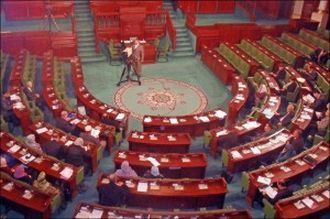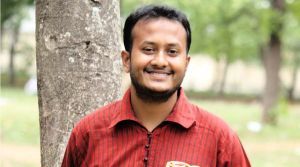
Publisher:
Bonnie King
CONTACT:
Newsroom@Salem-news.com
Advertising:
Adsales@Salem-news.com

~Truth~
~Justice~
~Peace~
TJP
Mar-27-2012 22:45

 TweetFollow @OregonNews
TweetFollow @OregonNews
TUNISIA: Ensure Strong Safeguards for Rule of Law and Human Rights
Letter by William Gomes Salem-News.comSalem-News.com Eye on the World report.
 Tunisian National Constituent Assembly |
(HONG KONG) - The Tunisian National Constituent Assembly has made important strides since its election on October 2011, towards writing a new constitution. With the formation of the six drafting commissions, the deputies will now have to make crucial choices regarding the system of governance, the foundational principles of the Tunisian republic, and the relations between the different branches of government. Tunisian citizens have strongly expressed their demands for a new constitution to prevent the abusive practices of the old regime. I urge the National Constituent Assembly to be attentive to such demands in drafting the new constitution.
Our goal with Eye on the World is to illustrate and highlight politically oriented problems and tragedies that traditional media channels don't have time or interest in covering.
The world has its own set of laws that were agreed upon by the ruling nations in 1948, and many people are not aware of this simple fact. At the root of the concept of world citizenry itself, is the United Nations Universal Declaration of Human Rights, an overriding and supreme law that ensures many essential human rights that governments today fail to observe. Also central to any hope of human success, is the understanding of the human hierarchy of needs, as defined by Abraham Maslow- more information on this at the conclusion of this entry. We must use the Internet as a tool of justice at every junction, and we need to assist all human beings, everywhere, and not allow cultural, racial or religious preferences as determiners.
In this letter to Members of the Tunisian National Constituent Assembly (NCA), Mr. Gomes suggests that Tunisia support a strong constitutional affirmation of judicial independence by promoting mechanisms to shield judges from pressures of the executive branch, in their appointment, discipline and assignment to cases, and that does not give to the executive branch a decisive power over the career path of sitting judges. William Gomes also says it is not sufficient that the NCA adopt a new constitution that incorporates these rights but must guarantee them through implementing mechanisms which should be also set out in the constitution. In particular, the NCA should consider the creation of a constitutional court that is empowered to rule on the constitutionality of laws, and that can invalidate laws that are not in conformity with human rights standards affirmed in the constitution.
| “ |
Dear Members of the Tunisian National Constituent Assembly, The Tunisian National Constituent Assembly (NCA) has made important strides since its election on October 23, 2011 towards writing a new constitution. With the formation of the six drafting commissions, the deputies in the NCA will now have to make crucial choices regarding the system of governance, the foundational principles of the Tunisian republic, and the relations between the different branches of government. Tunisian citizens have strongly expressed their demand for a new constitution that will prevent the abusive practices of the old regime. I urge the National Constituent Assembly to be attentive to such demands in drafting the new constitution. The constitution-drafting process is expected to conclude in a maximum of eighteen months, although no formal deadline has been imposed. The constitution approval process involves a vote on each article that a simple majority of the NCA will decide. Then the entire constitution will be submitted to the NCA. If it fails to win a two-thirds majority on two attempts, it will be submitted to a popular referendum. Following approval of a new constitution, Tunisia will hold presidential and legislative elections Most of the draft constitutions that various parties across the political spectrum have presented so far share a broad agreement on principles such as: the prohibition of torture and the non-applicability of statutes of limitation for torture; equality of all citizens before the law; the rights of the defense in the judicial process; political rights such as the rights of association and assembly and to form political parties; the independence of the judiciary; and the right to participate in free and fair elections. However, these draft constitutions diverge widely when it comes to sources of legislation, freedom of expression and the limitations on public and personal freedoms that should be permitted. Some of the drafts diverge from international human rights law, both in their formulation of certain human rights and in the discretion granted to the legislator to limit those rights. I urge the constituent assembly to draft a constitution that will ensure strong safeguards for human rights through the following elements: Supremacy of human rights treaties over domestic law
Specific rights to be enshrined in the Constitution
In addition, the new constitution should contain a specific mention of the right to privacy, which encompasses protection against unwarranted social and state intrusion through the protection of the person, the family, the home, personal data and personal communication, as enshrined under article 17 of the International Covenant for Civil and Political Rights.
I thank you for your time and attention. Sincerely, William Nicholas Gomes William’s Desk |
” |
Maslow's hierarchy of needs
As children we are educated in right and wrong, we are told how to conduct ourselves; we learn both expectations and limitations, and from that point we go forth with these tools, and our individual personalities, and fail or succeed accordingly.
In school we quickly understand that without paper, there is no place to write. Once we have paper, a pen or pencil is required to move to the next point. There is a great analogy that exists between this simple concept of paper and pen, and what we know today as Maslow's hierarchy of needs- the theory in psychology proposed in Abraham Maslow's 1943 paper A Theory of Human Motivation.
He demonstrated how without the correct necessities, a person can do little good for themselves, and has none to offer for others. However when people are housed and have clothing, heat, food, health and security, anything is possible. However if just one of these dynamics is removed from the mix, the chance for success can be adversely affected.
Wikipedia describes Maslow's hierarchy of needs as a pyramid consisting of five levels:
The lowest level is associated with physiological needs, while the uppermost level is associated with self-actualization needs, particularly those related to identity and purpose.
The higher needs in this hierarchy only come into focus when the lower needs in the pyramid are met. Once an individual has moved upwards to the next level, needs in the lower level will no longer be prioritized. If a lower set of needs is no longer be met, the individual will temporarily re-prioritize those needs by focusing attention on the unfulfilled needs, but will not permanently regress to the lower level.
For instance, a businessman at the esteem level who is diagnosed with cancer will spend a great deal of time concentrating on his health (physiological needs), but will continue to value his work performance (esteem needs) and will likely return to work during periods of remission.
And finally, if you care about our efforts, please help us by sending a donation, we seriously need it as ad revenue is very limited, and we aren't doing this to make money. Your support allows our attention to remain with content which is vital. There is a PayPal logo at the top of Salem-News.com. Please help us fight the good fight.
Our PayPal email is bonjtheartists@hotmail.com
Special thanks to William's Desk

Salem-News.com Writer William Nicholas Gomes is a Bangladeshi journalist, human rights activist and author was born on 25 December, 1985 in Dhaka. As an investigative journalist he wrote widely for leading European and Asian media outlets.
He is also active in advocating for free and independent media and journalists’ rights, and is part of the free media movement, Global Independent Media Center – an activist media network for the creation of radical, accurate, and passionate telling of the truth. He worked for Italian news agency Asianews.it from year 2009 to 2011, on that time he was accredited as a free lance journalist by the press information department of Bangladesh. During this time he has reported a notable numbers of reports for the news agency which were translated into Chinese and Italian and quoted by notable number of new outlets all over the world.He, ideologically, identifies himself deeply attached with anarchism. His political views are often characterized as “leftist” or “left-wing,” and he has described himself as an individualist anarchist.
 |
 |
 |
 |
 |
Articles for March 26, 2012 | Articles for March 27, 2012 | Articles for March 28, 2012

Quick Links
DINING
Willamette UniversityGoudy Commons Cafe
Dine on the Queen
Willamette Queen Sternwheeler
MUST SEE SALEM
Oregon Capitol ToursCapitol History Gateway
Willamette River Ride
Willamette Queen Sternwheeler
Historic Home Tours:
Deepwood Museum
The Bush House
Gaiety Hollow Garden
AUCTIONS - APPRAISALS
Auction Masters & AppraisalsCONSTRUCTION SERVICES
Roofing and ContractingSheridan, Ore.
ONLINE SHOPPING
Special Occasion DressesAdvertise with Salem-News
Contact:AdSales@Salem-News.com

Salem-News.com:
googlec507860f6901db00.html

Terms of Service | Privacy Policy
All comments and messages are approved by people and self promotional links or unacceptable comments are denied.
[Return to Top]
©2025 Salem-News.com. All opinions expressed in this article are those of the author and do not necessarily reflect those of Salem-News.com.